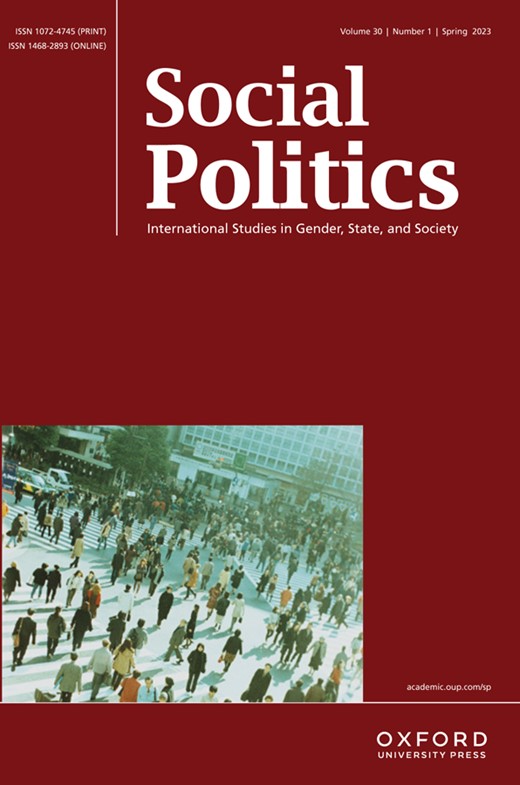-
Views
-
Cite
Cite
Maro Youssef, Unlikely Feminist Coalitions: Islamist and Secularist Women’s Organizing in Tunisia, Social Politics: International Studies in Gender, State & Society, Volume 30, Issue 1, Spring 2023, Pages 1–21, https://doi.org/10.1093/sp/jxab020
Close - Share Icon Share
Abstract
Following the 2010–2011 revolution, Islamist and secularist political parties and women’s rights organizations formed coalitions in Tunisia. Nothing of the sort had happened before in Tunisian history. This article considers the conditions that led feminists with different ideological beliefs to create what I call an “unlikely feminist coalition” in Tunisia. I argue that Islamists and secularists can form unlikely feminist coalitions when facing similar threats, working on similar tasks prior to formation of the coalition, the experience of common grievances, and a shared feminist identity. Drawing on the gender politics and social movement literature on coalitions, I suggest that more needs to be understood about unlikely feminist coalitions, especially in the Middle East.



